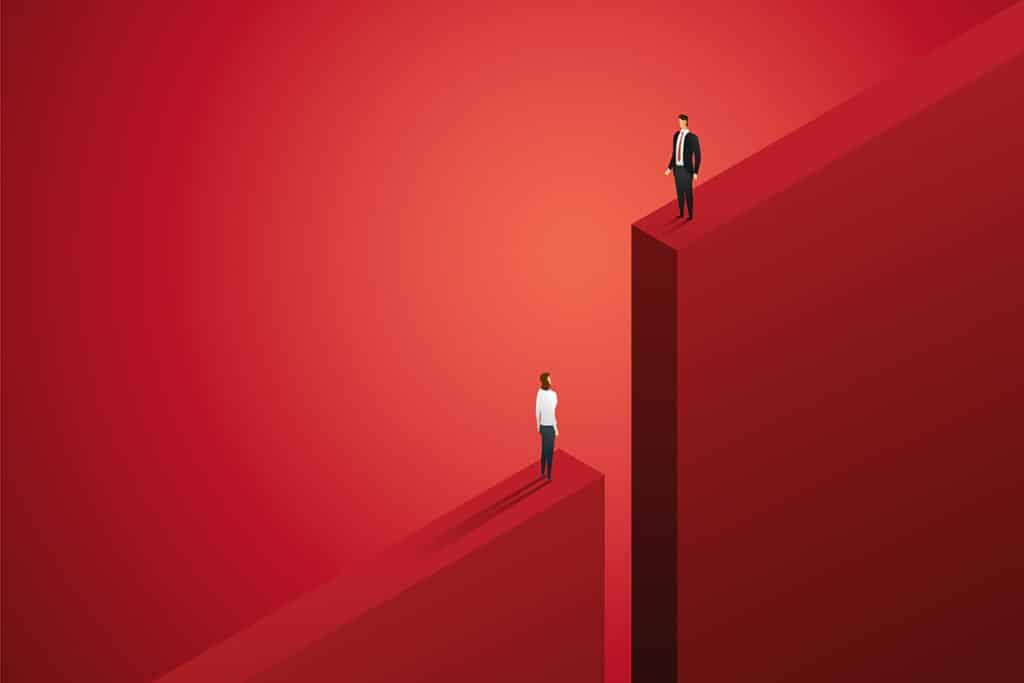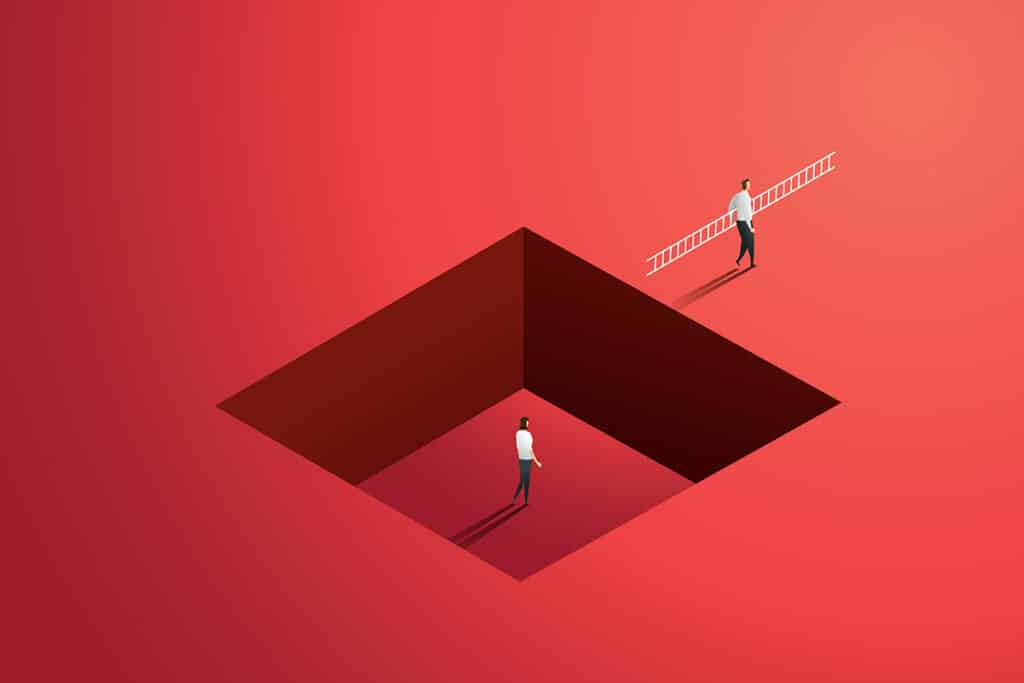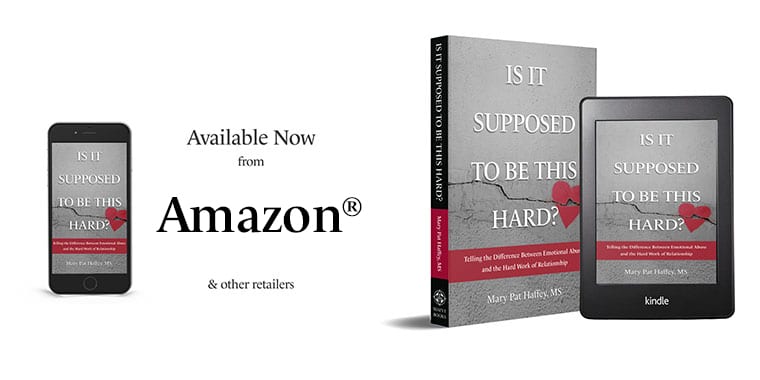- Abusive relationships are based on an imbalance of power.
- In emotionally abusive relationships the power imbalance takes non-physical forms.
- An unequal and unconscious relationship contract is often the foundation of emotionally abusive relationships.
An imbalance of power is a key factor in any abusive situation. In physically abusive relationships that power imbalance has a lot to do with physical violence and fear of physical harm.
In emotionally abusive relationships the power imbalance, by definition, takes non-physical forms.
Unequal Earning Power

When an abuser is the primary wage-earner, they may use that to control the family finances by denying equal access to funds, indulging themselves while saying there is not enough money for what the partner wants, and shaming or harassing the partner for their expenditures, among other tactics.
Unequal Life Experiences
Another potential imbalance of power occurs when one person is considerably older and has more life experience, comes from a more privileged social situation, has a more prestigious education, or holds a more powerful position in their career than the other person. Abusers often use those factors to take a superior attitude, regularly dismissing, diminishing, and generally disrespecting their partners. They use their status to influence and control them because they “know better.”

If the abused individual has a history of trauma, abuse, abandonment, or neglect they are especially vulnerable to an abuser’s manipulations and mistreatment.
Sometimes, however, the abused partner is on an equal (or better) financial footing with the abuser. They have similar social standing and have come into the relationship with a sense of confidence and well-being. So how does abuse happen in those circumstances? Where is the power imbalance?
Unequal and Unconscious Relationship Contract

People begin relationships with the belief that they have a mutual understanding about what makes a healthy, loving relationship. They believe they have a shared relationship contract. With healthy couples, that relationship contract is based on a mutual commitment to the well-being of each person and the relationship as a whole.
Unfortunately, in abusive relationships, there is no such mutual agreement, although one person believes that there is. While abused partners trust that the person they love is working with them toward mutual well-being and a healthy relationship, abusers are taking advantage of that trust to gain a position of power over them.
This unspoken and unrecognized misalignment in the relationship contract sets up a hidden power imbalance that allows abusers to subtly maneuver for dominance and control while their partners believe they are both involved in the work of building a loving, mutually supportive and respectful relationship.
Healthy vs Abusive Relationships
In healthy partnerships, compassion, understanding, and forgiveness are part of a mutually beneficial relationship, but abusers tend to treat those things as acceptance of the abuse and permission to keep abusing.

Another part of healthy relationships is compromising and showing consideration for each other. While abusers will show thoughtfulness when it serves their purposes, they have a habit of taking advantage of their partner’s attempts at compromising and being considerate to skew things in their favor. They also have a way of adding just enough kindness and caring to their subtle abuses to keep their partner believing that they really do share the same loving relationship contract.
People in healthy relationships understand the concept of “take responsibility for your part of the problem,” but while abused partners are taking responsibility by focusing on what they can do to make the relationship better, abusers are busy avoiding responsibility and blaming their partner, so any efforts for change are one sided which is frustrating and demoralizing for the abused partner.
Telling the Difference
The following experiences are signs that you may be living under the unconscious and unequal relationship contract that is a very subtle part of an emotionally abusive relationship:
- You have a habit of showing your partner compassion, understanding, and forgiveness, hoping that this loving display will reduce the hurtfulness in your relationship, but things have gotten worse instead of better.
- You repeatedly feel like you take your partner’s wants and needs into consideration but find that it is not regularly reciprocated.
- You feel like you have worn yourself out trying to improve your relationship, but your partner is not making any kind of consistent or meaningful effort.
Becoming aware of how these covert abuses work is an important early step in stopping the abuse. A therapist familiar with the intricacies of partner emotional abuse, or the Domestic Violence Hotline can be useful resources in helping you clarify the unconscious and subtly unequal aspects of your relationship, opening the way to healing and better self-care.
